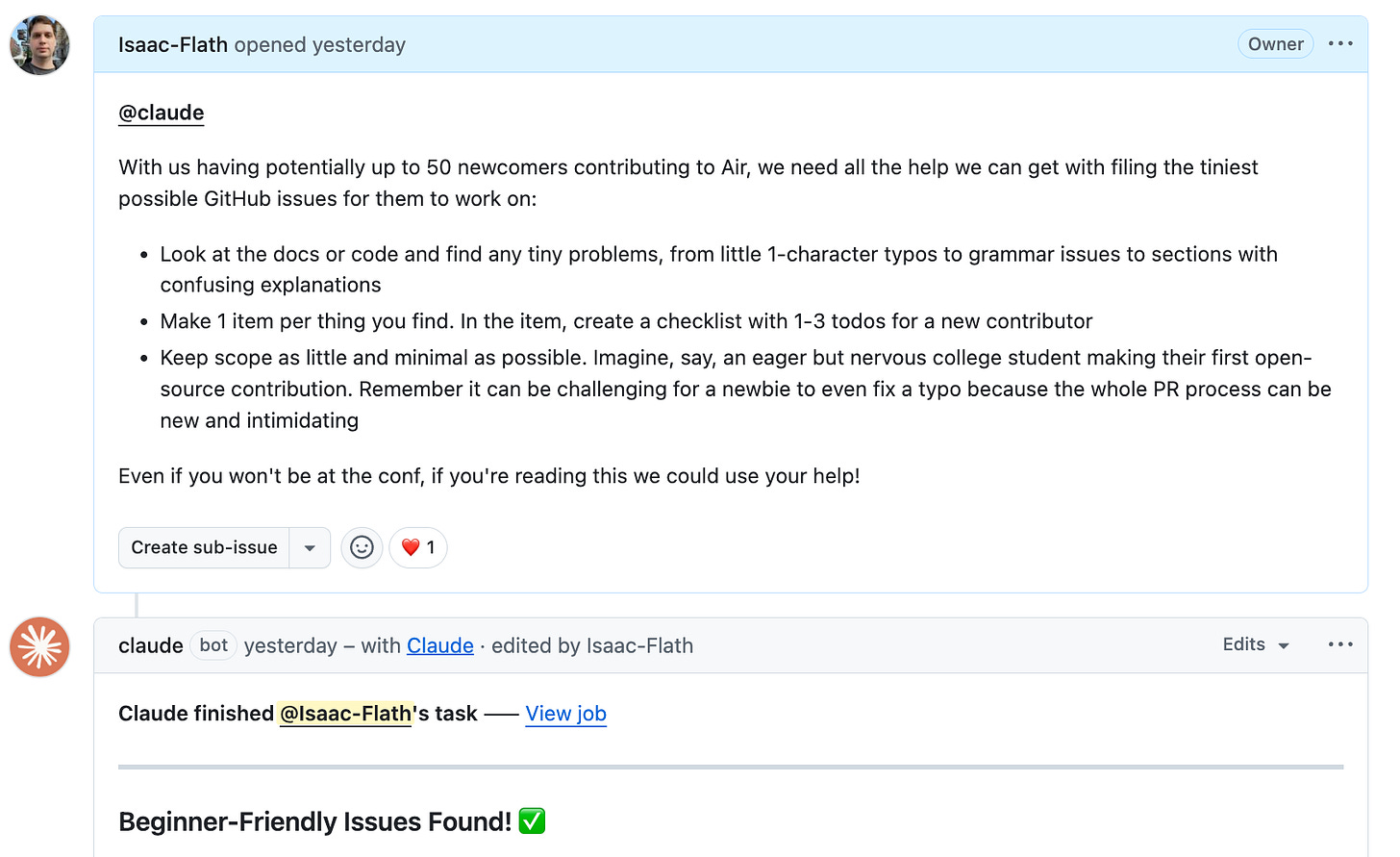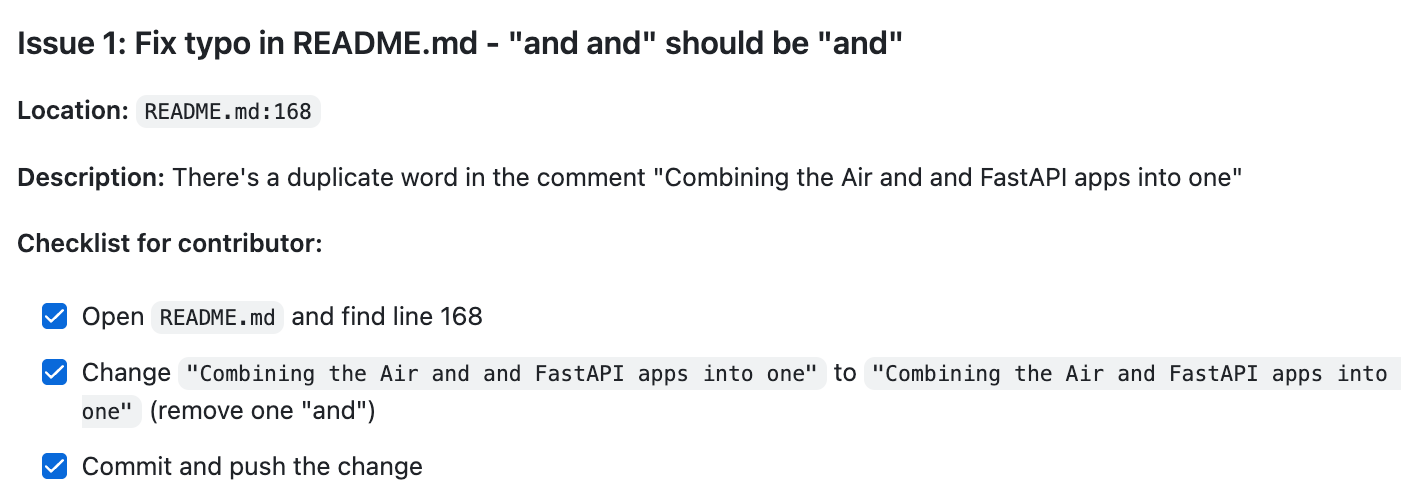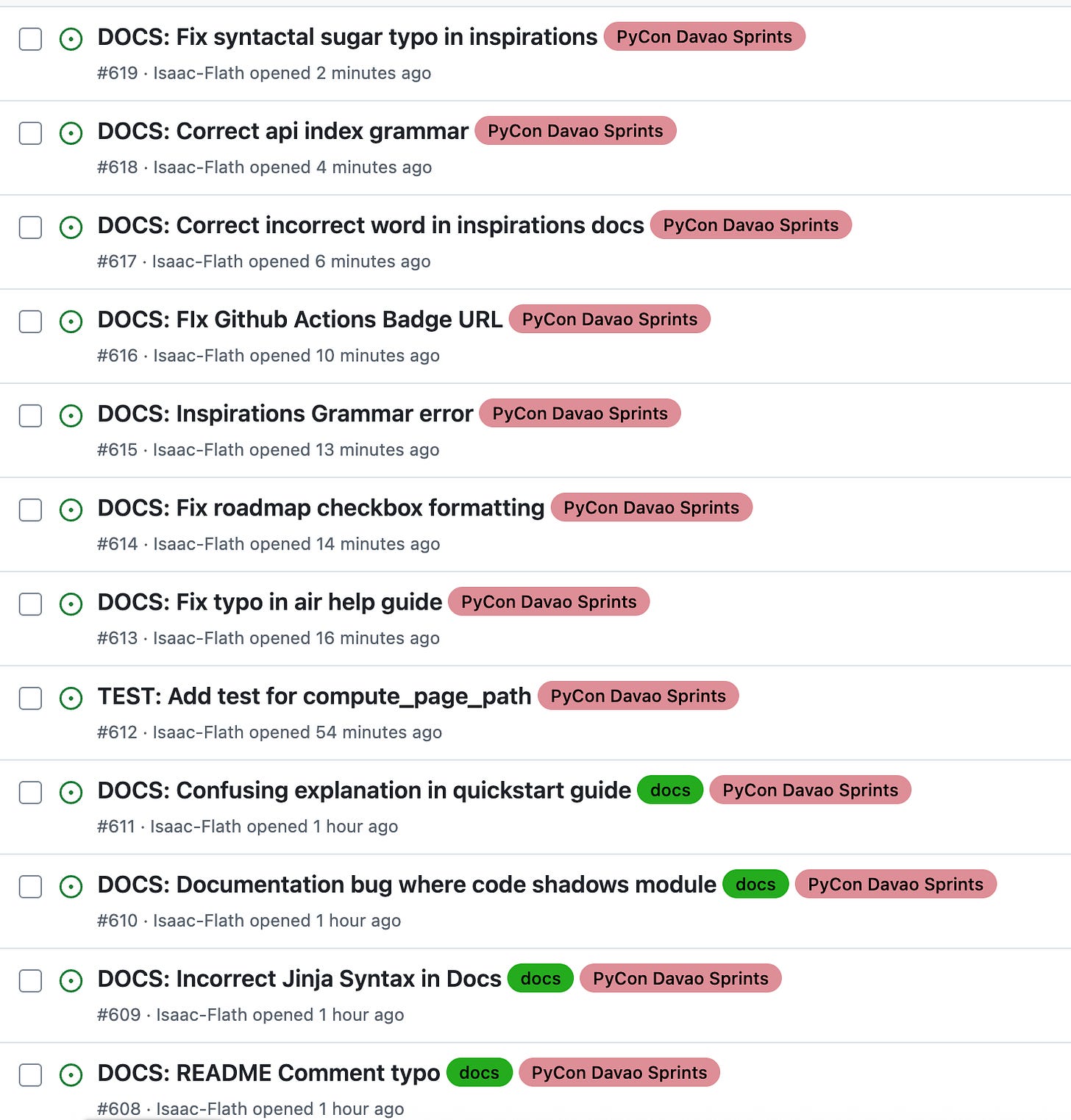Tiny Issues, Big Help: Using AI for an Open Source Sprint Prep
PyCon Davao was approaching. With it came a sprint for Air, a new web development library. Daniel and Audrey Roy Greenfeld were leading the sprint, expecting contributors of all skill levels. I wanted to help, even though I couldn’t attend.
One thing they wanted prep help for? Issues. Not just any issues, but tiny ones. Think single-character typos, small grammar fixes, confusing sentences in the docs. We needed tasks simple enough for someone who might never made a pull request (PR) before to an open source project. These small tasks allow newcomers to practice the mechanics of contributing without getting lost in complex code.
Finding these tiny flaws is tedious work. It drains time a developer could spend on more substantial problems. So, I tried something different and tried using an AI assistant, Claude, in GitHub issues to find them.
I hooked up Claude to my fork, and sent the task to Claude.
Claude analyzed the Air codebase and documentation. It started finding potential small issues, just as requested. For example, it found duplicate words:
The process wasn’t fully automatic. I reviewed Claude’s suggestions, verified they were actual issues, and then manually created the official GitHub issues for the sprint. I iterated, prompting Claude further as needed.
The result? I had created 19 small, actionable issues ready for newcomers quicker than I would have on my own. On my own, I probably would have stopped at 10 issues.
I didn’t just find typos. It surfaced other inconsistencies I might have missed. It questioned why Air uses a 303 redirect status code while Starlette (What air is built on) uses 307 by default. It flagged a comment about Jinja rendering Air tags, a feature not yet implemented.
What did this process show? AI can be useful in preparing for events like open-source sprints. And it can help clear away the small bits of clutter (typos, the slightly confusing phrase, etc) that accumulate in any project.
Finding these small issues quickly saves time and makes the project better, bit by bit. And it provides a welcoming entry point for those new to open source. AI won’t replace the developer, but it can certainly help them work better.





